In an increasingly complex world, the allure of leadership often revolves around intricate strategies, grand plans, and impressive titles. However, amidst this complexity, leaders risk losing sight of what truly matters. Simplicity, far from being a mere style, emerges as a potent tool in effective leadership. It embodies clarity, enabling leaders to communicate their vision in a way that resonates with everyone, fostering connection and understanding. Simplicity also involves making decisions that cut through unnecessary details, focusing instead on what truly counts. This approach helps maintain focus during turbulent times and inspires trust. Moreover, simplicity is an act of courage. It requires the bravery to distill complex situations to their essence without losing the appearance of control. It demands transparency and clarity in difficult decisions, eschewing jargon and bureaucracy. Yet, too often, leaders are seen in the grandeur of their ministerial SUVs, surrounded by bodyguards, seemingly disconnected from the everyday struggles of ordinary citizens. They no longer feel the potholes, the traffic jams, or the floods that plague the common man. Their opulent vehicles shield them from the crumbling houses and the realities of the people they serve. Imagine the impact if leaders embraced the simplicity exemplified by former Dutch Prime Minister Mark Rutte, who famously cycled to work in a suit. Such an act would not only bridge the gap between leaders and citizens but also foster a deeper understanding of the challenges faced by the populace. In a society where complaints about leadership are rife, the civility of the people in not resorting to violence is commendable. However, in other parts of the world, dissatisfaction has led to attacks on politicians and loss of life. Embracing simplicity in leadership—whether through modest transportation or reduced security—could forge a stronger bond with the public. Leaders who experience the daily grind firsthand would gain invaluable insights into the lives of those they govern. Ultimately, simplicity in leadership lays the foundation for effective collaboration and sustainable impact. Leadership is not about complexity but about the ability to connect, inspire, and move forward together. True leadership begins with the courage to be simple—close to the people, with open eyes and an open heart. Only then can trust be built, propelling a nation forward.
博客
-
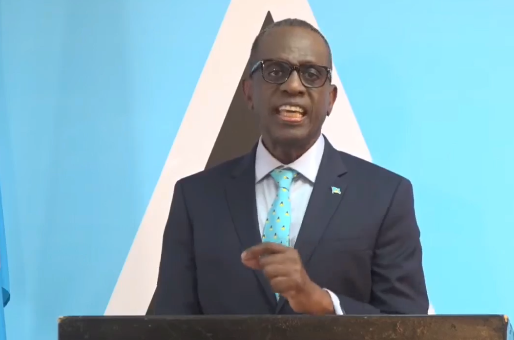
St. Lucians vote for a new government on December 1
St. Lucia is set to hold a pivotal general election on December 1, 2025, nearly a year ahead of the constitutionally mandated date in November 2026. Prime Minister Phillip J. Pierre announced the decision in a national broadcast on November 9, 2025, revealing that he had advised Governor General Errol Charles to dissolve Parliament on November 10. Nomination Day is scheduled for November 21, marking the official start of the electoral process. Pierre emphasized that the decision was driven by the government’s confidence in its achievements and the need to continue normal governance. He highlighted significant economic improvements under his administration, including a reduction in national debt and outstanding payables. The opposition United Workers Party (UWP), led by Allen Chastanet, welcomed the announcement, framing the election as an opportunity for change. Both major parties held rallies on November 9, signaling an intense campaign period ahead. The election will test the SLP’s record against the UWP’s bid to reclaim power after its 2021 defeat.
-
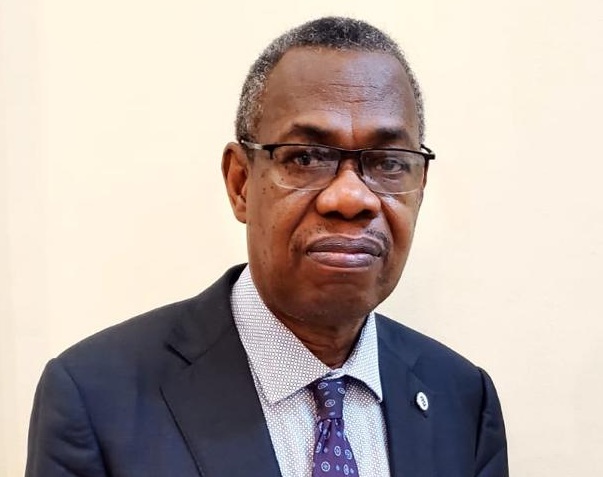
GYEITI civil society convenor says no conflict of interest though a gold miner; “I maintain my integrity at all times”- English
Dr. Ivor English, the newly appointed civil society convenor for the Guyana Extractive Industries Transparency Initiative (GYEITI), has firmly dismissed allegations of a conflict of interest due to his involvement in the mining sector. Speaking to Demerara Waves Online News on Sunday, Dr. English emphasized his commitment to integrity and objectivity, stating, ‘I have always been considered a kind of middle-ground objective person that will not allow myself to be involved in conflict of interest.’ While he acknowledged owning mining properties, he clarified that he has not been actively mining for several years due to adverse weather conditions that damaged his equipment. However, he did not rule out resuming operations in the future. Natural Resources Minister Vickram Bharrat supported Dr. English’s appointment, asserting that the convenor’s limited mining activities do not pose a conflict of interest. He highlighted that Dr. English has not engaged in active mining since acquiring his mining blocks in 2014 and has no current operations in gold, diamond, or sand mining. Dr. English, who also serves as Managing Director of E & E Mining Enterprises, expressed willingness to relinquish his mining interests if necessary, stating, ‘I can even walk away from that because my benefits are not significant.’ The GYEITI, affiliated with the Norway-based Extractive Industries Transparency Initiative (EITI), aims to combat corruption in Guyana’s extractive sectors, including oil, gas, mining, and forestry. Dr. English’s role as convenor does not grant him influence over the selection of civil society representatives for the multi-stakeholder group (MSG), as the process is governed by independent rules and guidelines. He is also barred from serving on the MSG itself. Dr. English reiterated his dedication to objectivity and integrity, stating, ‘I am a relatively small contented fish willing to contribute to national development and I maintain my integrity at all times.’ His appointment follows a transparent selection process, with the Natural Resources Ministry emphasizing his extensive civic and humanitarian contributions, including his long-standing role in the Guyana Conference of Seventh-day Adventists and Lions Clubs International. The ministry also noted that Dr. English holds no political affiliations, further underscoring his suitability for the role.
-
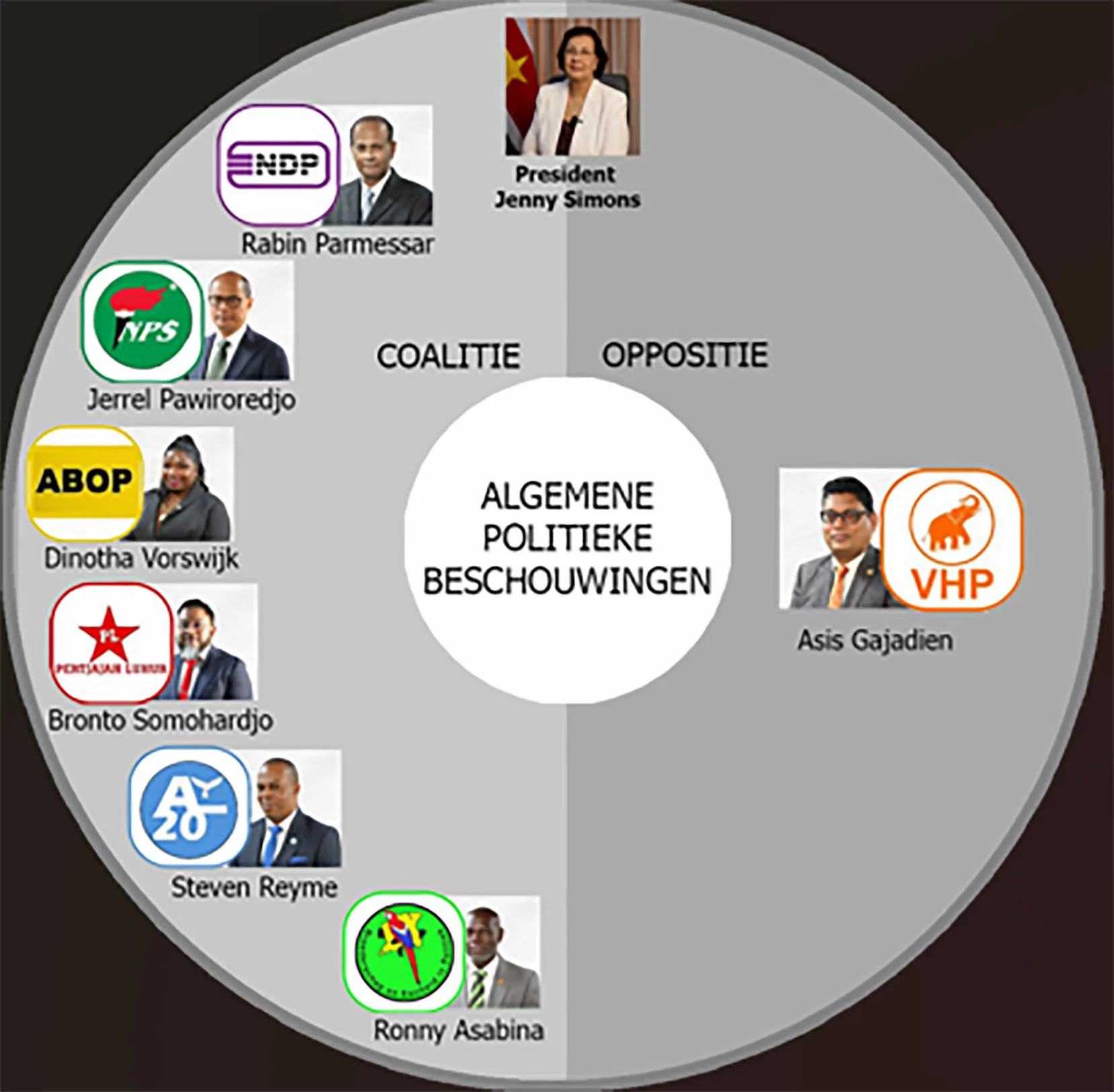
Van woorden naar daden: partijen zetten toon voor politieke beschouwingen
The National Assembly of Suriname commenced its annual General Political Reflections (APB) today, marking a pivotal moment for political discourse and evaluation. This tradition precedes the budget discussions and offers a platform for political parties to share their perspectives on the nation’s socio-economic, governance, and foreign relations landscape. The APB serves as a critical forum for dialogue between party leaders and the President, setting the stage for policy formulation and national priorities.
-
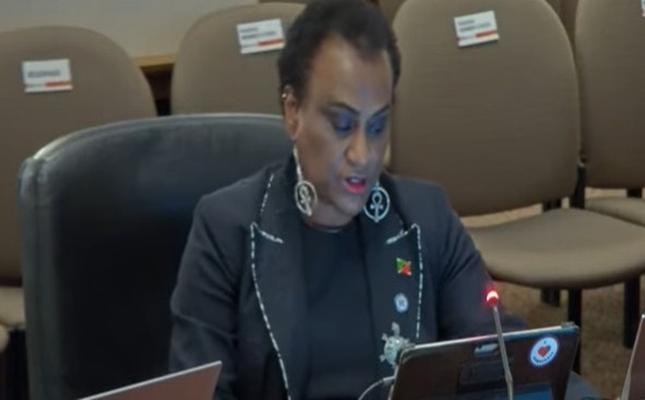
St. Kitts and Nevis stands in solidarity with Jamaica as Ambassador highlights climate change crisis at OAS
In a powerful address at the Organization of American States (OAS) Permanent Council, St. Kitts and Nevis Ambassador to the United States, Jacinth Henry-Martin, reaffirmed her nation’s solidarity with Jamaica in the wake of Hurricane Melissa. The Category 5 storm, which struck Jamaica with sustained winds of 185 mph, caused widespread devastation, claiming over 40 lives and leaving communities in ruins. Ambassador Henry-Martin used the platform to emphasize the urgent need for global action on climate change, particularly for small island developing states (SIDS) that bear the brunt of its impacts. She highlighted the grim realities on the ground, including lives lost, livelihoods destroyed, and the immense challenges of rebuilding in the face of increasingly severe weather events. Henry-Martin stressed that the aftermath of such disasters is not just about recovery but a struggle for survival, as SIDS face repeated vulnerabilities exacerbated by climate change. She called for a just international response, urging major emitting nations to honor their commitments to climate finance and the Loss and Damage Fund. Early estimates suggest Jamaica faces over US$2 billion in damages, underscoring the disproportionate burden SIDS endure. Regional leaders, climate activists, and stakeholders have amplified these calls at the 30th Conference of Parties (COP30) in Brazil, while UN Secretary-General António Guterres warned of the urgent need to prevent global warming from surpassing the 1.5°C threshold. Ambassador Henry-Martin concluded by urging hemispheric stakeholders to unite in protecting lives and livelihoods during and after disasters, emphasizing that climate change is no longer a distant threat but a present crisis.
-
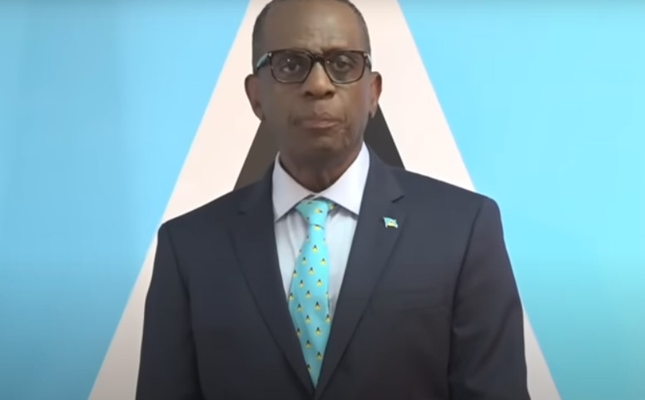
St. Lucians to head to the polls on December 1
St. Lucia is gearing up for a pivotal moment in its democratic process as Prime Minister Phillip J. Pierre announced that the nation will hold its General Elections on December 1, 2025. The decision was revealed during a national address on November 9, where Prime Minister Pierre confirmed that he had advised the Governor General to dissolve Parliament on November 10, 2025, and issue the Writs of Election, formally initiating the electoral process. Nomination Day is scheduled for November 21, 2025, marking the final steps before the vote. The political landscape is heating up as the ruling St. Lucia Labour Party (SLP), led by Prime Minister Pierre, and the opposition United Workers Party (UWP), headed by Allen Chastanet, ramp up their campaigns. This election will see a rematch between the two leaders, both vying for the country’s highest political office. With the campaign season entering its final phase, St. Lucians are preparing to make their voices heard in what promises to be a closely contested election.
-

Guyanese stakeholders agree on measures to tackle bullying in schools
In a landmark move to address the pervasive issue of bullying in schools, the Ministries of Education, Human Services, and Home Affairs in Guyana have united to implement a multi-faceted strategy. This initiative, announced during a national consultation held at the Arthur Chung Conference Centre in Liliendaal, Greater Georgetown, underscores the government’s commitment to fostering a safer and more respectful educational environment. Education Minister Sonia Parag revealed that the ministries will sign a memorandum of understanding to formalize their collaboration. Additionally, a task force, including the Ministry of Legal Affairs, will be established to ensure a structured and effective approach to tackling bullying. Minister Parag emphasized the need for open dialogue on bullying, which could lead to legislative reforms. She also highlighted the inadequacy of transferring bullies to other schools, stressing the importance of addressing the root causes of such behavior. To instill moral values and civic responsibility, the Ministry of Education will introduce Moral Education and Civic Education into school curricula within the next few weeks. Furthermore, a secure digital platform has been launched to enable students, parents, and staff to report bullying incidents confidentially, ensuring timely interventions while protecting privacy. Human Services Minister Dr. Vindhya Persaud presented the national anti-bullying policy, which will serve as a foundation for a broader, more comprehensive strategy. She also noted the role of domestic violence in fostering bullying behavior and called for collective efforts from educators, community leaders, and religious figures to combat this issue. Deputy Chief Education Officer Fazia Baksh outlined the severe psychological and academic consequences of bullying, including anxiety, depression, and even suicidal ideation. Home Affairs Minister Oneidge Walrond proposed appointing anti-bullying leads in schools to coordinate with the Guyana Police Force’s Cyber-Crime Unit, ensuring swift responses to cyber-bullying incidents. She also advocated for clear protocols to manage bullying cases internally and escalate serious incidents to law enforcement when necessary. Minister Walrond highlighted the growing threat of cyber-bullying, which extends beyond school hours, and stressed the importance of protecting children’s dignity and mental health. The Guyana Police Force’s Cyber-Crime Unit, equipped with digital forensics expertise, plays a crucial role in addressing online harm, preserving evidence, and collaborating with international partners to remove harmful content. This comprehensive strategy aims to create a culture of respect, accountability, and well-being for all students in Guyana.
-

Proposal revives discussion on allowing military and police to vote
The Dominican Republic is once again embroiled in a contentious debate over whether to lift the long-standing ban on voting for military and police personnel. This discussion has been reignited by a proposal from Constitutional Court Judge Sonia Díaz, bringing the issue to the forefront of national discourse. The country remains one of the few in Latin America—alongside Colombia, Guatemala, Honduras, and Paraguay—that continues to prohibit armed forces members from exercising their right to vote.
-
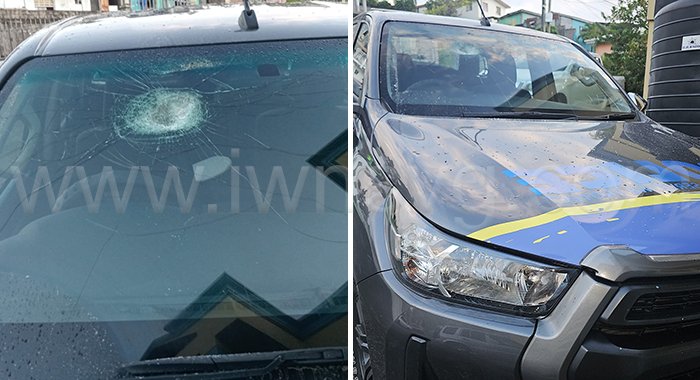
Police vehicle damaged as NDP whistle stop pelted with stones
A campaign event for the opposition New Democratic Party (NDP) in Rillan Hill turned violent on Sunday when unidentified individuals hurled stones at vehicles, damaging the windshield of a police pick-up truck. The incident occurred as NDP supporters were en route to a party event in Penniston. According to reliable sources, two men from the village have been detained by police in connection with the attack. NDP Public Relations Officer Lavern King condemned the act in a social media video, emphasizing that the event, organized by Nigel “Nature” Stephenson, a candidate seeking a fourth term as MP for South Leeward, was intended to be peaceful. King expressed concern over the potential for serious harm, stating, “Lives could have been taken.” She also criticized the escalating political tensions, urging for a campaign free from violence. This incident follows a similar episode during the 2020 general election campaign in the same area, where gunshots were reported. The Royal Saint Vincent and the Grenadines Police Force (RSVGPF) had recently reiterated calls for calm and responsible behavior during the election season, warning that acts of violence or property damage could constitute criminal offenses. The RSVGPF emphasized its commitment to impartiality and maintaining order, urging citizens to uphold democratic values and respect opposing views.
-

Column:Borrelpraat no. 897
In a decisive move, Suriname’s President has intervened to halt ongoing discussions regarding the export of bauxite from West Suriname, emphasizing that no agreements or negotiations have been conducted on behalf of the government. This development comes amidst a backdrop of historical controversies surrounding bauxite deals, including past attempts by former ministers to renegotiate terms with foreign entities at the eleventh hour. The President’s firm stance has been echoed by the Vice President, who assured that all potential investors are being kept informed and that any processing of bauxite must occur domestically, with due consideration for indigenous interests. However, the President’s recent public statements have caused confusion among some, particularly following the visit of a Chinese mining company’s CEO to Suriname. The President also addressed broader issues of land allocation, declaring that all land grants since 2018 are illegal and that a thorough review will be conducted to legitimize rightful allocations. This process is expected to be a monumental task, potentially involving hundreds of legal cases and significant financial implications for the state. The President’s proactive measures aim to rectify past irregularities and ensure that Suriname’s natural resources are managed in the best interest of its citizens.
